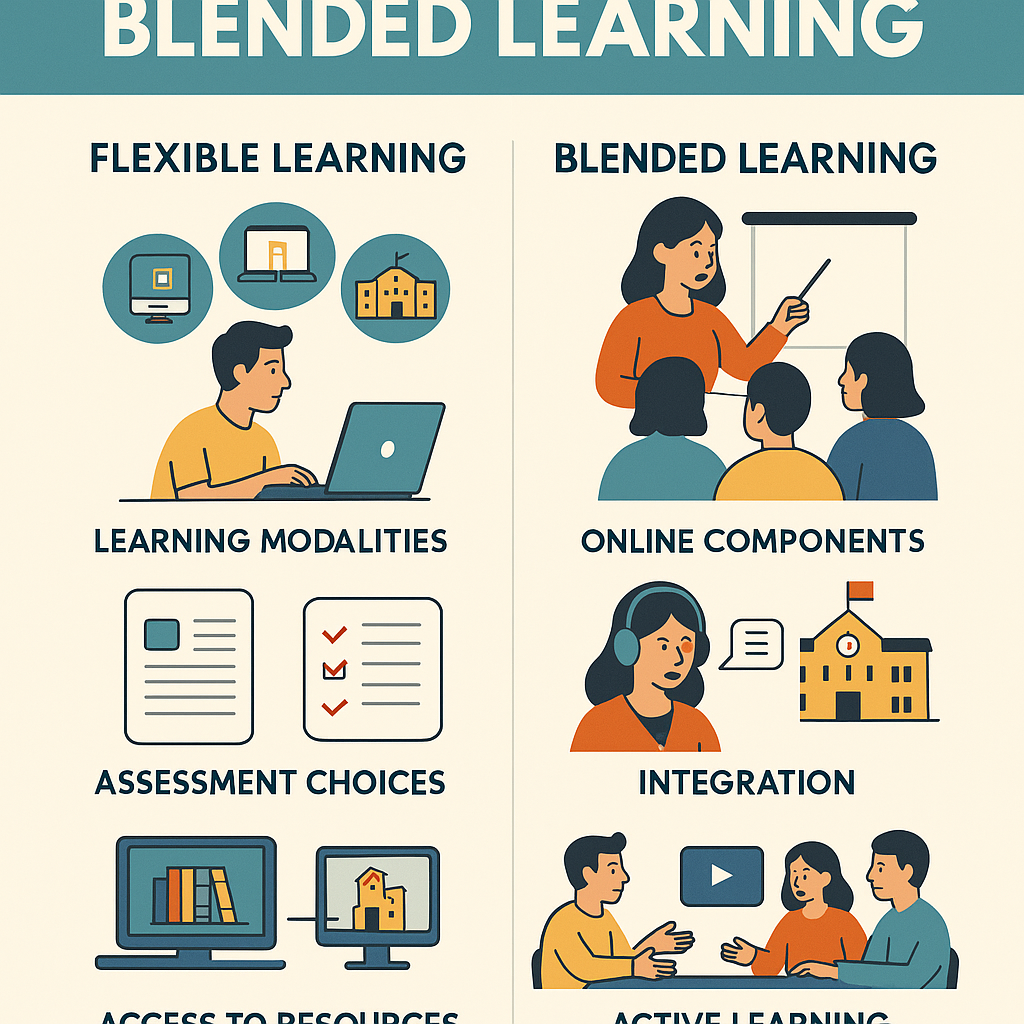
The Flexible and Blended Learning course introduces learners to modern approaches in education that combine both face-to-face and online learning methods. The course focuses on designing, implementing, and evaluating learning environments that provide learners with greater flexibility in terms of time, pace, place, and learning paths.
Learners explore different blended learning models, use of digital technologies, and strategies for engaging and supporting students in diverse educational settings. Emphasis is placed on learner-centered design, inclusive practices, and the effective use of Learning Management Systems (LMS) and other digital tools.
By the end of the course, learners gain practical skills to:
Plan and deliver blended lessons,
Integrate technology in teaching,
Support diverse learners remotely and in-person, and
Evaluate and improve learning outcomes in hybrid environments.
The course is ideal for teachers, trainers, and educators looking to adapt to 21st-century teaching practices.
- Teacher: sharon chepkoech
- Teacher: Richard Yahuma
